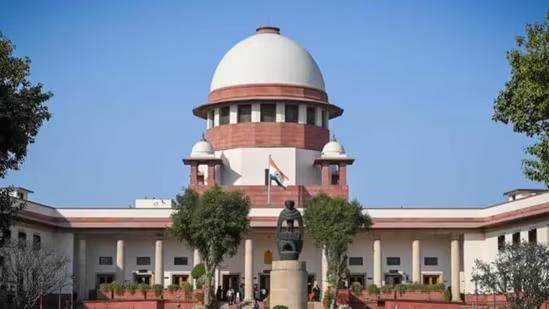
Court Can’t Grant Assent to Bills, Only Gov & Prez Can: Maha to SC
The Supreme Court is currently hearing a presidential reference on whether the court can impose timelines for the Governor and President to deal with bills passed by state Assemblies. The Maharashtra government has weighed in on the issue, arguing that courts have no authority to accord assent to bills and that this power is vested solely in the Governor and President.
Senior advocate Harish Salve, representing the Maharashtra government, made these comments during the hearing. He emphasized that the court’s role is limited to interpreting the Constitution and laws, and that it cannot usurp the powers of the executive branch.
Salve cited several precedents and constitutional provisions to support the government’s stance. He pointed out that the Constitution explicitly empowers the Governor and President to grant assent to bills, and that the court has no authority to override this provision.
The Maharashtra government’s argument is based on the principle of separation of powers, which is a fundamental tenet of the Indian Constitution. The Constitution divides the powers of the government into three branches: the legislative, executive, and judicial. The legislative branch is responsible for making laws, the executive branch is responsible for implementing those laws, and the judicial branch is responsible for interpreting them.
In this context, Salve argued that the court’s role is limited to interpreting the Constitution and laws, and that it cannot usurp the powers of the executive branch. He pointed out that the court has no authority to grant assent to bills, as this is a power that is specifically reserved for the Governor and President.
The Maharashtra government’s stance is not without precedent. In the past, the court has consistently held that the court has no authority to grant assent to bills. For example, in the case of S P Sampath Kumar v. Union of India, the Supreme Court held that the court has no power to grant assent to a bill that has been passed by both Houses of Parliament.
Similarly, in the case of State of Punjab v. Union of India, the Supreme Court held that the court has no authority to direct the Governor to grant assent to a bill that has been passed by the Punjab Assembly. The court held that the Governor has the discretion to grant or withhold assent to a bill, and that the court cannot dictate to him how to exercise that discretion.
The Maharashtra government’s argument is also supported by the constitutional provisions themselves. Article 114 of the Constitution empowers the Governor to grant assent to bills passed by the state Assembly, and Article 111 empowers the President to grant assent to bills passed by Parliament. There is no provision in the Constitution that empowers the court to grant assent to bills.
Furthermore, the Maharashtra government’s argument is supported by the doctrine of separation of powers, which is a fundamental principle of the Indian Constitution. The Constitution divides the powers of the government into three branches: the legislative, executive, and judicial. The legislative branch is responsible for making laws, the executive branch is responsible for implementing those laws, and the judicial branch is responsible for interpreting them.
In this context, it is clear that the court has no authority to grant assent to bills. The court’s role is limited to interpreting the Constitution and laws, and it cannot usurp the powers of the executive branch. The Governor and President have the power to grant assent to bills, and it is for them to exercise that power in accordance with the Constitution and the law.
In conclusion, the Maharashtra government’s argument that courts cannot grant assent to bills and that this power is vested solely in the Governor and President is a sound one. The court’s role is limited to interpreting the Constitution and laws, and it cannot usurp the powers of the executive branch. The Governor and President have the power to grant assent to bills, and it is for them to exercise that power in accordance with the Constitution and the law.






